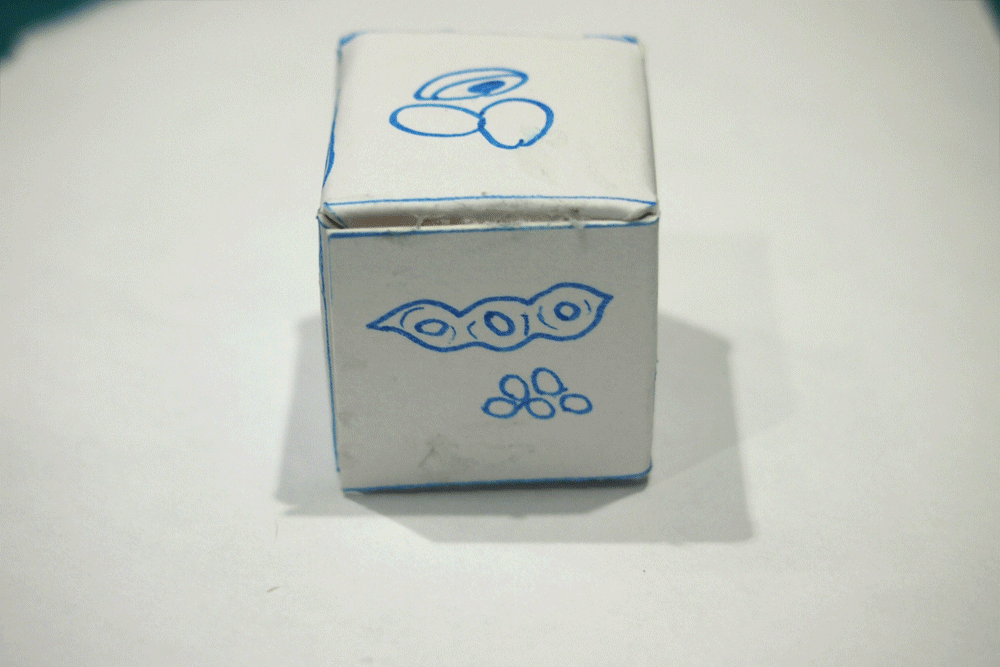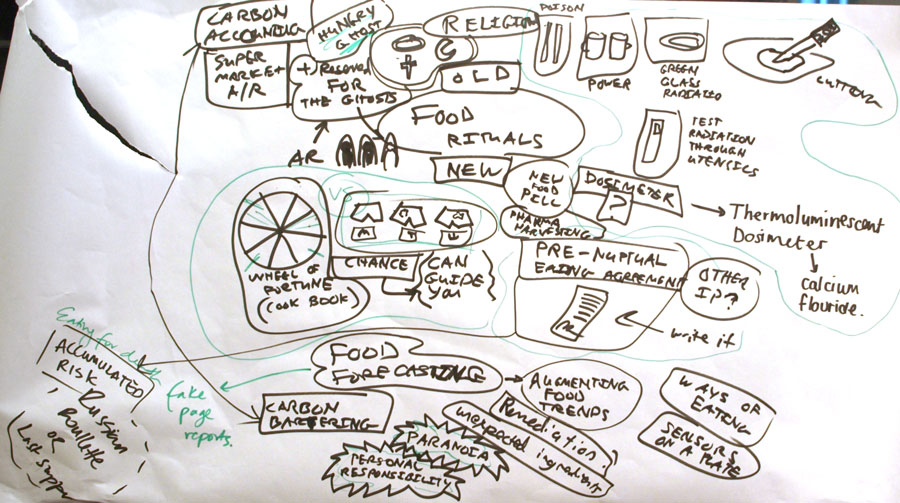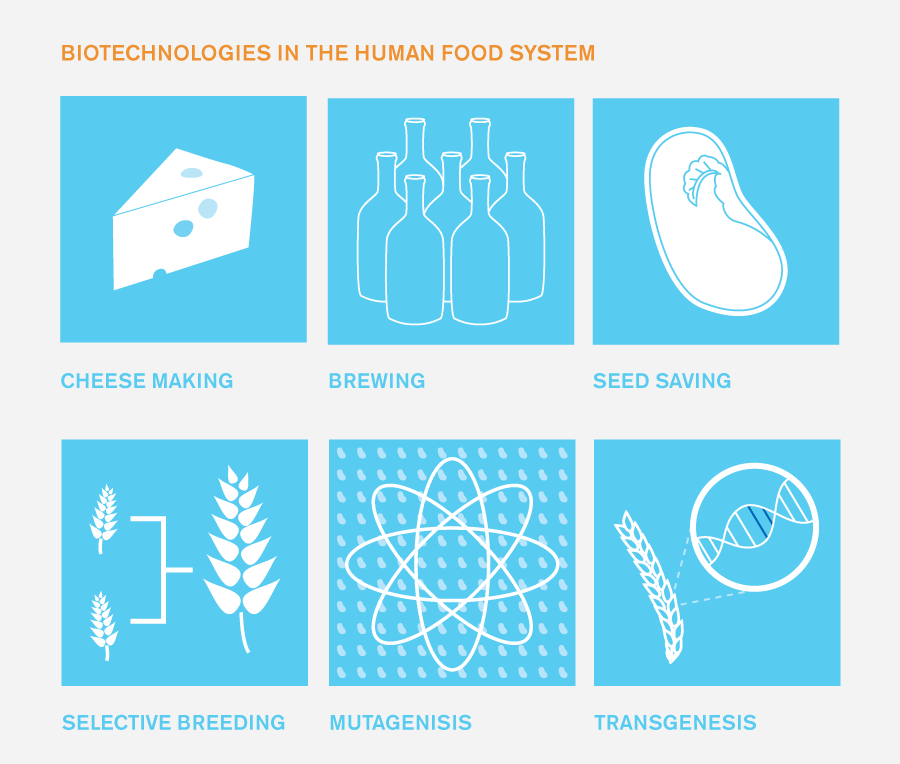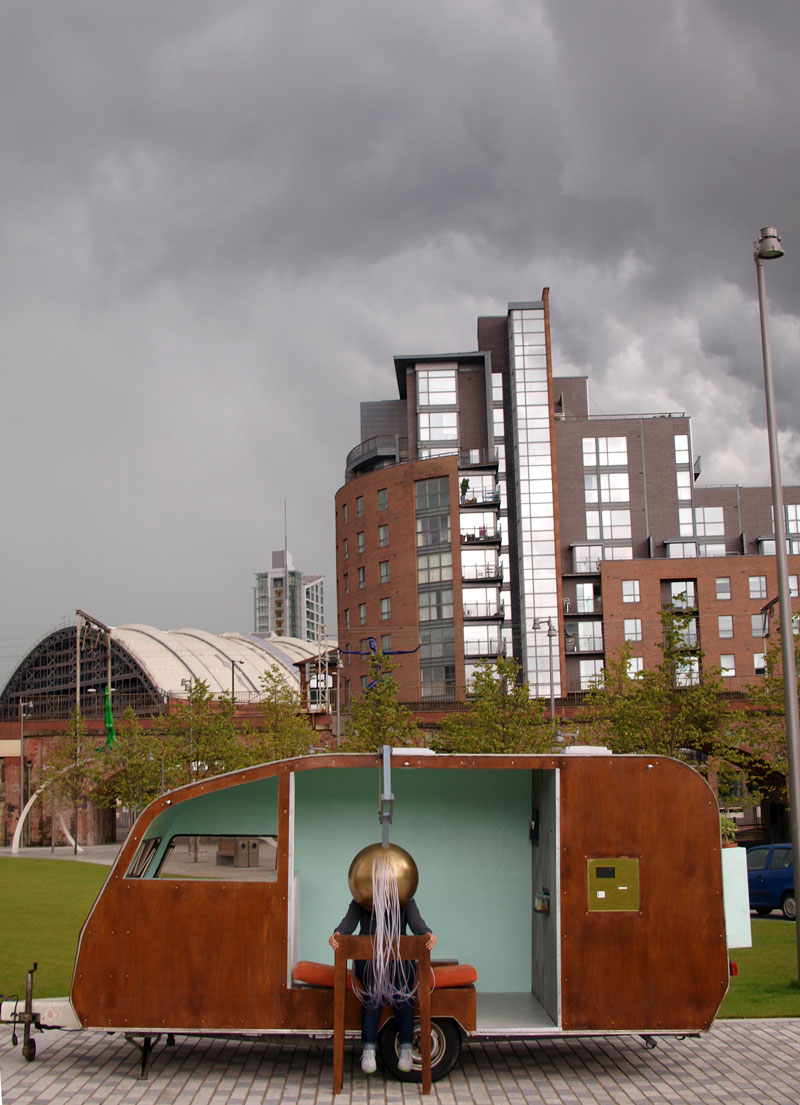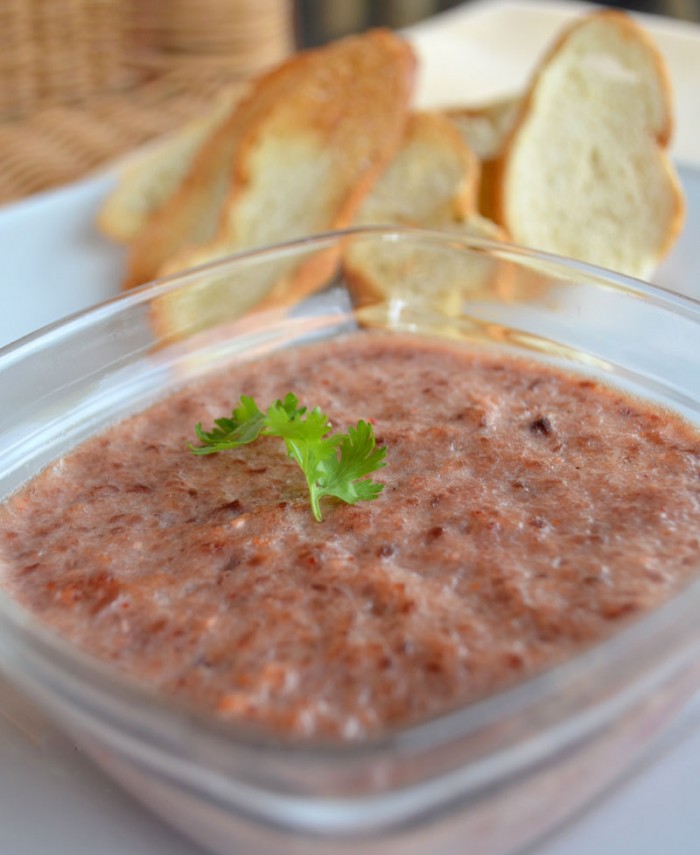
During our research with DA4GA we met, collaborated with and debated a number of researchers, (in addition to our wonderful hosts and collaborators at NCHA). One of the best parts of working on the DA4GA in the Netherlands was the proximity of so many cities and centers of research. We inevitably crossed paths with researchers that share similar interests but have very different disciplinary lenses and approaches.
We thought it would be useful to list some of the people we interacted with in the Netherlands, and hint at how these interactions have shaped our thoughts.
Michael Korthals
Prof. dr. M. Korthals, (Professor Applied Philosophy, Chair Social Science, Ethics Committee, Social Sciences, Wageningen University) attended one of our presentations and emailed us a paper “Coevolution of Nutrigenomics and Society: Ethical Considerations”. The paper is a useful critique of the dominant view of nutrigenomics, which tends to emphasize the health of the individual (as opposed to collective or environmental health), and views food as a preventive means for personalized health, for the prevention of calculable risks, and a personal responsibility.
Prof. Korthals seems to share our own interest in creating alternative frameworks for food, health & genomics research. These alternative frameworks might take into account collective and environmental health concerns, as well as societal, cultural and political approaches to food system change: instead of privileging technical approaches. We are hoping to learn more about Prof. Korthals’ research and were happy to hear that our artwork prompted him to reach out to us.
Mark Post
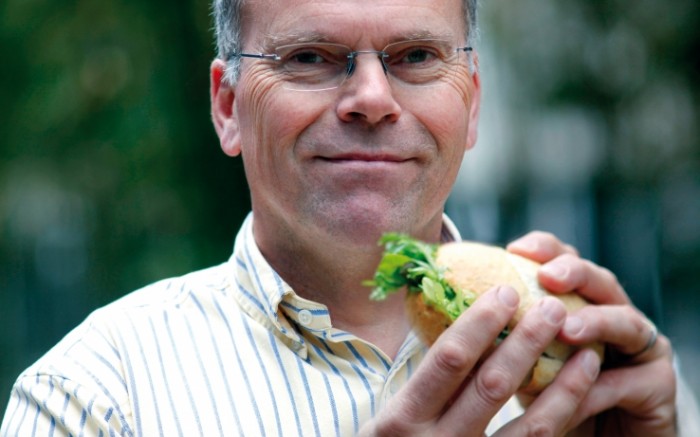
While in the Netherlands the Center for Genomic Gastronomy took part in a live cooking event, called ArtMeatFlesh hosted by Oron Catts. We were matched up with Mark Post; one of the leading In Vitro Meat researchers in the world. It was a very curious but fruitful interaction for us. On the one hand our research and instincts, lead us to be very skeptical about the emphasis on techno-scientific solutions to food problems. Food problems require social, cultural and political nuance and rigor not always central to scientific/engineering inquiry.
Although the Center remains deeply skeptical about the way In Vitro Meat is being marketed as a solution to hunger and sustainable food systems,it was a treat to work with Prof. Post. He was amazingly open minded, generous and a great cook to boot.
Based on our conversations, Prof. Post seemed committed to promoting reduced meat consumption. He believes less meat consumption will in general lead to more sustainable food systems. However, knowing that not everyone will give up meat consumption entirely, he views In Vitro meat production as preferable to traditional meat consumption.
We thought it might be interesting to create a series of “What-If” dishes that used humor to highlight the dreams, hype and possible unintended consequences of In Vitro meat production.
(For example, industrially produced bacon fat high in Fatty 3 Omega acids, might taste like fish, or In Vitro meat might be used to create exceedingly decadent / disgusting creations such as “Surf & Turf” slurry, a lobster & steak bath of gelatinous muscle cells. We also revisited failed food utopias to acknowledge the long and checkered history of instrumentalizing food production.)
Here is a list of the dishes Mark Post & The Center for Genomic Gastronomy created:
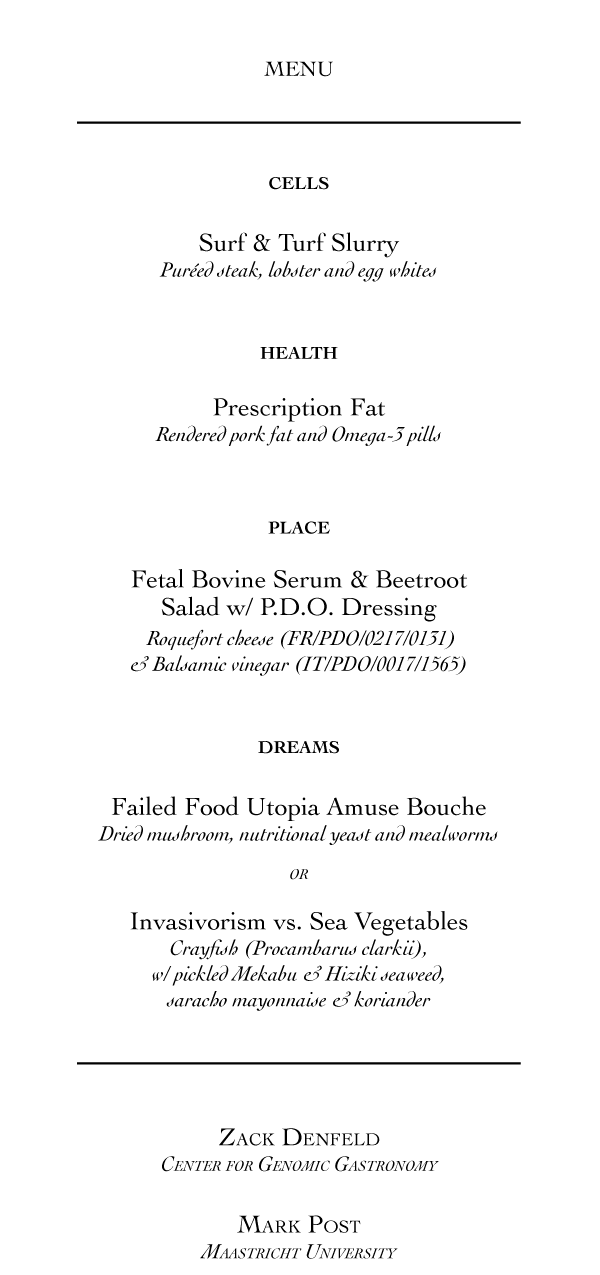
As our collaboration with Mark hopefully showed: In Vitro Meat is perhaps most useful as a method of culinary and ethical inquiry that force eaters to engage directly with the unusual implications of semi-living steaks and the increasingly abstracted relations most humans have to the non-human animals they consume. For more on In Vitro Meat we highly recommend the Tissue Culture and Art’s Victimless Steak project.
Bert Lotz
The Center had the opportunity to give a co-lecture with Prof. Bert Lotz in Rob Zwijnenberg‘s class at Leiden University. Prof. Zwijnenberg teaches a class called “VivioArts: Art and Biology Studio” and the theme for this semester was “Who Owns Life?” The students in this class had spent the previous part of the semester working with the artist Boo Chapple in the lab.
Prof. Lotz and I arrived to the class not knowing exactly what to expect. Lotz gave a concise talk to the students about his work with Transgenic and “Cisgenic” research. (Ironically, it turns out that Prof. Lotz and the Center for Genomic Gastronomy may have shown together before. The Center presented the Cisgenesis artist book at in 2010, and it sounds like Prof. Lotz may have also presented at the show as well, but we never met in person).
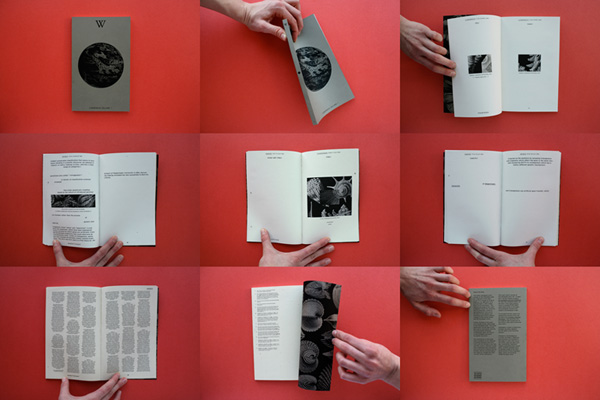
The students had a number of questions for Prof. Lotz. In particular, they seemed to be very attuned to the unintended consequences and downstream implications of his research. For example, they wondered why he was researching trasngenic corn, and whether that might have downstream consequences on land use ( clearing the rainforest for animal feed / fungible export crops ), energy supplies (biofuels) and processed food (corn syrup) et al. I shared many of the same questions. Prof. Lotz seemed very sincere in his desire that scientists interact with “society” but maintained a privileged position of knowledge, and seemed deeply skeptical of the value of arational approaches to decision making. (For example, I got the sense from his response to the students that preference, taste, tradition and subjectivity were not appropriate methods for making decisions about which crops, genomes or agricultural methods should be employed. That is a shame because behavioral economics and other social science fields increasingly inform us that complex systems and wicked problems require arational heuristics in order to be ameliorated).
One of the advantages of directing our attention on “gastronomy” rather than “agronomy” or “agriculture” is the requirement of including the subjective when dealing with difficult topics. With the lens of Gastronomy is food as culture, not only food as fuel or food as product.
This may be the biggest learning for us over the last few months, and a rich insight provided by lecturing with Prof. Lotz: The research conducted by the Center for Genomic Gastronomy is always at least partly subjective, and includes many ways of knowing that are excluded by normative scientific practice. Talking to researchers with the lens of gastronomy changes the landscape of the conversation.
Taste matters. Even in science.



